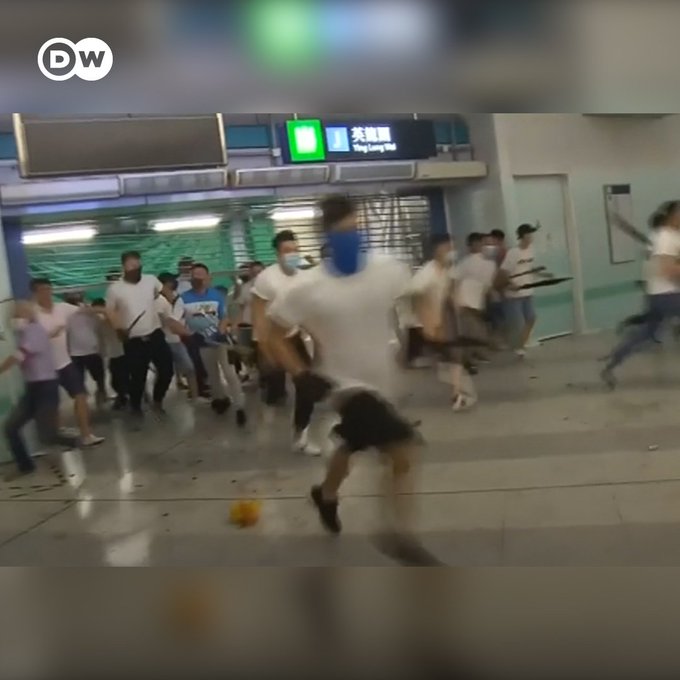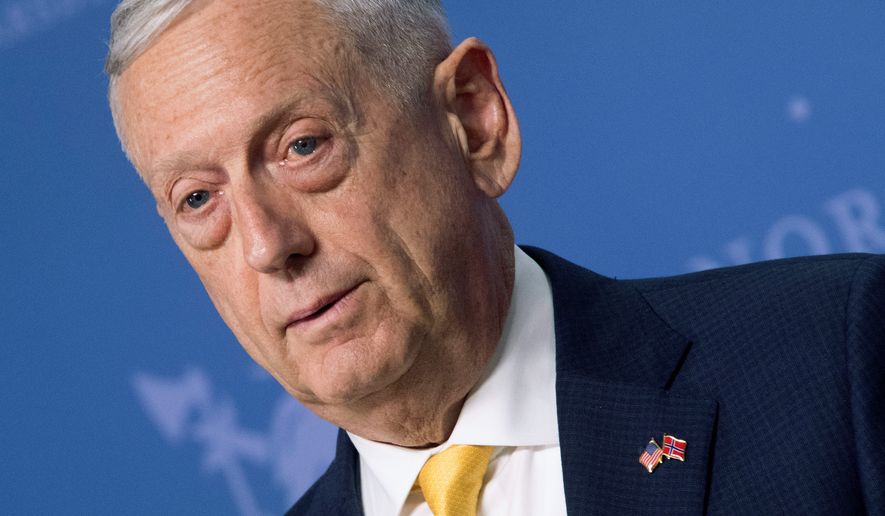By Isabella Steger

An uprising that started off with people marching and singing in high spirits morphs into one increasingly defined by violence, police brutality, propaganda wars, and even thug attacks—that’s the trajectory of the Euromaidan protests in Ukraine that Hong Kong’s protesters increasingly feel parallels their own struggle.
While the last few years have seen an explosion in popular uprisings across the world from the Middle East to Sudan to Puerto Rico, few have resonated with Hong Kongers as much as the 2014 pro-European, anti-Russian protests in Ukraine.
The timing of the uprising in Kiev’s central Maidan square, coming just months before the outbreak of the Umbrella Movement in 2014, provided a convenient reference point for those in Hong Kong. Five years later, as a much more volatile and high-stakes resistance movement in Hong Kong emerges, Ukraine’s experience feels even more eerily familiar and instructive.
Oleksandra Ustinova, a 33-year-old politician who was recently elected to Ukraine’s parliament, said that as a student at Stanford earlier this year she gave a joint presentation with some Hong Kong student leaders and participants of the Umbrella Movement, where they tried to draw parallels between the two situations.
Oleksandra Ustinova, a 33-year-old politician who was recently elected to Ukraine’s parliament, said that as a student at Stanford earlier this year she gave a joint presentation with some Hong Kong student leaders and participants of the Umbrella Movement, where they tried to draw parallels between the two situations.
“I know that a lot of (Hong Kong) were looking at Ukraine as a prototype,” said Ustinova.
The Oscar-nominated 2015 documentary Winter on Fire, which is about the Maidan protests, has been one central discussion point for many Hong Kong protesters.
The Oscar-nominated 2015 documentary Winter on Fire, which is about the Maidan protests, has been one central discussion point for many Hong Kong protesters.
With the documentary now available on Netflix, many are sharing their thoughts on it.
Lee Ngao, the administrator of a Facebook page called Resistance Live Media that frequently shares updates related to the Hong Kong protests, recently promoted (link in Chinese) the documentary on his page.
“Hong Kong protesters are interested in Maidan because it’s enlightening and educational for them,” said Lee.
“It’s David vs. Goliath. Hong Kong protesters really admire those in Ukraine for their strategy and unwavering spirit of resistance.”
The David vs. Goliath comparison is one that’s also been oft used to describe the conflict in Ukraine. Arthur Kharytonov, a Kiev-based lawyer who started a group in 2017 called Free Hong Kong Center that aims to bring information about Hong Kong to a Ukrainian audience, said that both Russia and China are like a “very bad child of the USSR,” and employ similarly violent tactics to intimidate protesters.
The brutal scenes from an incident earlier this month that saw armed white-clad thugs beating people in a suburban train station, for example, felt shockingly familiar to followers of eastern European affairs.
The David vs. Goliath comparison is one that’s also been oft used to describe the conflict in Ukraine. Arthur Kharytonov, a Kiev-based lawyer who started a group in 2017 called Free Hong Kong Center that aims to bring information about Hong Kong to a Ukrainian audience, said that both Russia and China are like a “very bad child of the USSR,” and employ similarly violent tactics to intimidate protesters.
The brutal scenes from an incident earlier this month that saw armed white-clad thugs beating people in a suburban train station, for example, felt shockingly familiar to followers of eastern European affairs.
Many compared it to the Titushki, a term used by Ukrainians to refer to athletic young men believed to have been hired by the state to assault pro-democracy protesters and journalists.

Andreas Umland@UmlandAndreas
These kind of unofficial attack squads of an authoritarian regime have been labelled "titushky" in Ukraine, after one such martial arts fighter Vadym Titushko who was filmed attacking Ukrainian TV journalists. https://twitter.com/dwnews/status/1153966803477045248 …
DW News
✔@dwnews
𝗪𝗮𝗿𝗻𝗶𝗻𝗴: 𝘁𝗵𝗶𝘀 𝘃𝗶𝗱𝗲𝗼 𝗰𝗼𝗻𝘁𝗮𝗶𝗻𝘀 𝘃𝗶𝗼𝗹𝗲𝗻𝘁 𝗶𝗺𝗮𝗴𝗲𝘀
An assault on pro-democracy demonstrators in Hong Kong left dozens wounded. Footage showed people screaming as suspected triad gangsters beat protesters and leaving pools of blood on the floor.

2
1:15 PM - Jul 24, 2019
As questions swirled over why it was that Hong Kong police were absent for almost 45 minutes as thugs with wooden sticks and bats beat both black-clad activists returning from a protest and regular civilians in the train station, and in a carriage, many are alleging collusion between law enforcement forces and organized crime gangs known as triads.

Andreas Umland@UmlandAndreas
These kind of unofficial attack squads of an authoritarian regime have been labelled "titushky" in Ukraine, after one such martial arts fighter Vadym Titushko who was filmed attacking Ukrainian TV journalists. https://twitter.com/dwnews/status/1153966803477045248 …
DW News
✔@dwnews
𝗪𝗮𝗿𝗻𝗶𝗻𝗴: 𝘁𝗵𝗶𝘀 𝘃𝗶𝗱𝗲𝗼 𝗰𝗼𝗻𝘁𝗮𝗶𝗻𝘀 𝘃𝗶𝗼𝗹𝗲𝗻𝘁 𝗶𝗺𝗮𝗴𝗲𝘀
An assault on pro-democracy demonstrators in Hong Kong left dozens wounded. Footage showed people screaming as suspected triad gangsters beat protesters and leaving pools of blood on the floor.

2
1:15 PM - Jul 24, 2019
As questions swirled over why it was that Hong Kong police were absent for almost 45 minutes as thugs with wooden sticks and bats beat both black-clad activists returning from a protest and regular civilians in the train station, and in a carriage, many are alleging collusion between law enforcement forces and organized crime gangs known as triads.
The government and police have strongly denied the existence of such links.
However, in a recording obtained by Reuters, a Chinese official was heard encouraging residents of a village in the rural area near the scene of the attacks that they should drive away any protesters from the area in order to maintain peace just days before the July 21 mayhem.
Beijing’s representative office in Hong Kong has denied allegations linking it to the mob violence.
Others see comparisons even on a granular level.
Others see comparisons even on a granular level.
Edison Hung, a 31-year-old music critic, said he saw similarities between how Euromaidan began as a student-led protest that was peaceful and even uplifting, with people singing songs “with a degree of innocence, just like in Hong Kong.”
One scene in particular in Winter on Fire, where the bell ringer of a cathedral near the Maidan rang the church bells to signal to people to head to the square to defend protesters from government forces, reminded Hung of how Christians have played a central role in the current Hong Kong protests, for example by incessantly singing hymns to lend support to protesters and defuse tensions.
For now at least, one of the key things that differentiates the two protest movements is the lack of deadly violence in Hong Kong.
For now at least, one of the key things that differentiates the two protest movements is the lack of deadly violence in Hong Kong.
The city’s police have so far responded to what they say is worsening violence on the part of the protesters with weapons including tear gas, pepper spray, batons, rubber bullets, and bean bag rounds. Though it represents a significant escalation of tactics on both sides, there have been no deaths in the protests thus far.
In the Maidan, dozens of people lost their lives, some after being shot by snipers.
Thousands more have died in the ensuing war in eastern Ukraine between government forces and Russia-backed separatists.
“The protests in Hong Kong are 90% similar to Ukraine’s. The only difference being that they haven’t used real bullets in Hong Kong yet,” wrote a user named Zuki Po in a Facebook post (link in Chinese) that broke down in detail the similarities between the two uprisings using timestamps from Winter on Fire as reference points.
“The protests in Hong Kong are 90% similar to Ukraine’s. The only difference being that they haven’t used real bullets in Hong Kong yet,” wrote a user named Zuki Po in a Facebook post (link in Chinese) that broke down in detail the similarities between the two uprisings using timestamps from Winter on Fire as reference points.
As the protests in Hong Kong seem likely to drag on with no political solution in sight, however, the protests that inevitably turn into street battles against police will only intensify.
Police have already signaled that they’re prepared to use increasingly powerful crowd-control tactics, such as water cannons, and clashes between the two sides are beginning earlier and earlier in the day. For now, there’s also no sign that Beijing is prepared to send its army to quell the unrest, despite growing fears in recent weeks of such a likelihood.
Still, when watching scenes such as when Hong Kong protesters stormed the legislature and said that they were prepared to be arrested for it, Hung, the music critic, saw shades of the Ukraine protests.
“That made me think of the movie where people said that they were ready to die for (the cause). And they did die.”
“That made me think of the movie where people said that they were ready to die for (the cause). And they did die.”

